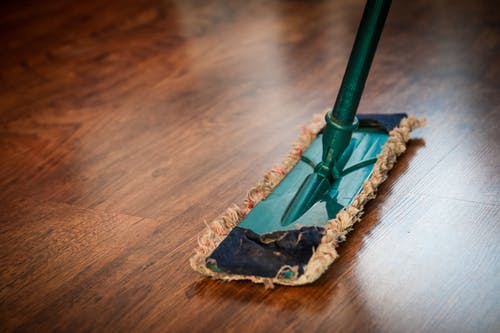By Erika Guzman a Recent ASU Nutrition Student
Spring may be here, but the weather does not prove anything for many of us! However, if you’re the type that loves to clean out the old musty winter smells and dust, spring cleaning is a wonderful way to refresh your home and clean everything with open windows and a beautiful breeze as the sun shines down on you! But instead of pulling out all of your cleaning supplies, why not try to go green and clean naturally?
First, Going green and purchasing ready-to-use green products have a different meaning. “Green” store, bought cleaning supplies usually refers to cleaners with less health and environmental hazards, but it’s quite vague. According to a study with Environmental Health Perspectives journal, products labeled as green and “nontoxic” mean quite the opposite; there’s a high potential that it is indeed toxic. There’s no such thing as nontoxic nor does the word ‘natural’ on cleaning products really mean anything since it is loosely regulated. In cleaning products with scents, they contain similar levels as volatile organic compounds as the traditional, normal products.
In short, a lot of products sold as natural, non-toxic, or green cleaners can have chemicals that could trigger respiratory problems. So what makes going green different than buying pre-made products? If you want to stick to the ‘go green’ cleaning movement it’s easy to make your own supplies with staple ingredients from your kitchen, and all of it is strong and cheap! From vinegar to sodas, these ingredients can help you clean tough grimes as well as leave a fresh clean feeling.
- Baking soda: it’s cheap and makes a very effective multi-surface cleaner without damaging surfaces. Mix this with lemons or sprinkle on a damp sponge and it cleans everything well.
- Vinegar: Vinegar is a strong acid that helps clean rough spots as well as clean stainless steel very well. Malt vinegar can kill the flu virus off of surfaces, so it is believed that vinegar has antibacterial properties.
- Washing soda or sodium carbonate: These are multipurpose natural cleaners that doubles as a heavy duty degreaser. It cleans off a lot of grime and dirt!
- Lemons: Lemons are known for their flavor and smell. Because it’s such an acidic fruit, it allows you to clean surfaces and help remove stubborn stains from glass and dinnerware. It also doubles as a cleaning agent with sinks and garbage disposals, leaving a clean smell without the funk.
- Some basic tips to make a cleaner without a recipe is to combine a 1:1 ratio of vinegar and baking soda. It helps to add salt to a sponge or even the surface of lemon if scrubbing is necessary as you use the cleaning agent.
- To make a paste, use ½ cup of baking soda, 2 tablespoons of water, and ¼ cup of vinegar; you can play with the consistency by adding more vinegar to ensure the paste you need, depending on the cleaning task.

These are simple ingredients that allow you to create wonderful cleaners for your home. If you want to add a scent, simply add essential oils that double as a cleaning agent, such as tea tree oil or eucalyptus oils. Otherwise, using homemade products allow you to know what goes into your cleaners, reduce exposure to any dangerous chemicals, reduce allergy-causing substances, and allows you to customize what you prefer!
For more articles like this check out our Fill Your Plate Blog. Check out the Farmers Market page to find some of these ingredients.
References
Dodson, R. E., Nishioka, M., Standley, L. J., Perovich, L. J., Brody, J.G., & Rudel, R. A. (2012).
Endocrine disruptors and asthma-associated chemicals in consumer products.
Environmental Health Perspectives. 120(7): 935-943. Retrieved at
https://www.ncbi.nlm.nih.gov/pmc/articles/PMC3404651/.
Greatorex, J. S., Page, R. F., Curran, M. D., Digard, P., Enstone, J. E., Wreghitt, T., Powell, P.
P., Sexton, D. W., Vivancos, R., & Nguyen-Van-Tam, J. S. (2010). Effectiveness of
common household cleaning agents in reducing the viability of human influenza A/H1N1.
PLos One. Retrieved at
http://journals.plos.org/plosone/article?id=10.1371/journal.pone.0008987.
Watson, S. (2017). Are green cleaners better for you? WebMD. Website. Retrieved at
https://www.webmd.com/asthma/news/20171102/are-green-cleaners-better-for-your-he
alth.

